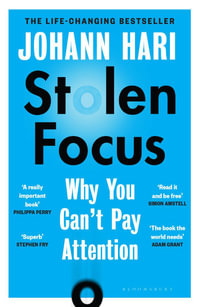
System Theories and a Priori Aspects of Perception
Volume 126
By: J. S. Jordan (Editor)
Hardcover | 21 April 1998
At a Glance
Hardcover
$694.50
Aims to ship in 10 to 15 business days
When will this arrive by?
Enter delivery postcode to estimate
ISBN: 9780444826046
ISBN-10: 0444826041
Series: Advances in Psychology
Published: 21st April 1998
Format: Hardcover
Language: English
Number of Pages: 366
Audience: Professional and Scholarly
Publisher: ELSEVIER SCIENCE & TECHNOLOGY
Country of Publication: US
Dimensions (cm): 23.39 x 15.6 x 2.24
Weight (kg): 0.71
Shipping
| Standard Shipping | Express Shipping | |
|---|---|---|
| Metro postcodes: | $9.99 | $14.95 |
| Regional postcodes: | $9.99 | $14.95 |
| Rural postcodes: | $9.99 | $14.95 |
How to return your order
At Booktopia, we offer hassle-free returns in accordance with our returns policy. If you wish to return an item, please get in touch with Booktopia Customer Care.
Additional postage charges may be applicable.
Defective items
If there is a problem with any of the items received for your order then the Booktopia Customer Care team is ready to assist you.
For more info please visit our Help Centre.
You Can Find This Book In
This product is categorised by
- Non-FictionReference, Information & Interdisciplinary SubjectsResearch & InformationInformation theoryCybernetics & Systems Theory
- Non-FictionPsychologyPsychological Theory, Systems, Schools of Thought & Viewpoints
- Non-FictionPsychologyCognition & Cognitive PsychologyPerception
- Non-FictionMedicineMedicine in General
- Non-FictionScienceScience in GeneralHistory of Science
- Non-FictionPhilosophyEpistemology & The Theory of Knowledge























